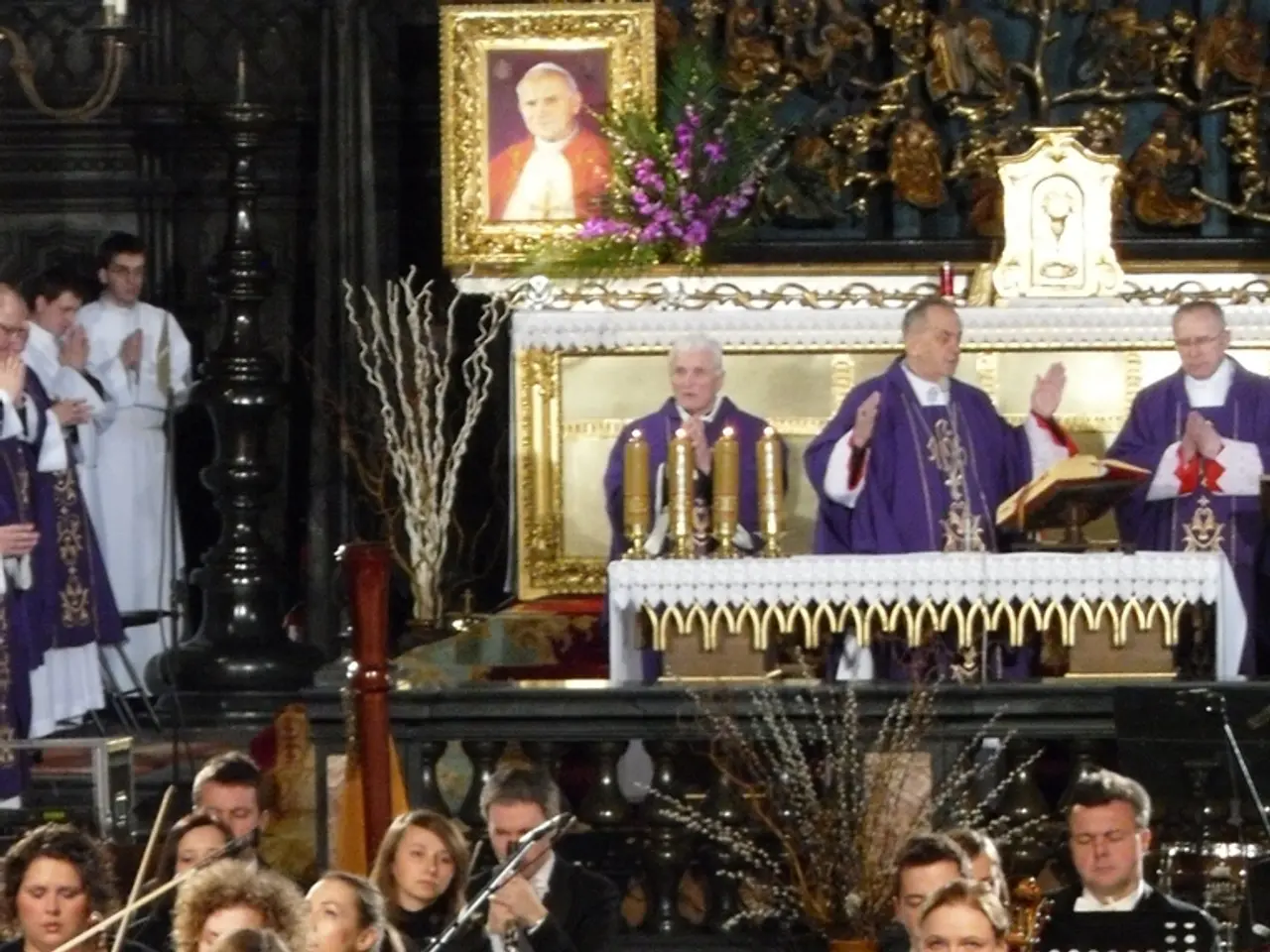"Remarkable development": Six conflict-stricken nations witness a significant advancement in Christian unity
Evangelical Gathering in Sibenik Promotes Peace and Unity in Post-Yugoslav Balkans
In June, a significant gathering took place in the city of Sibenik, Croatia, marking a key moment in the collaboration between Evangelical Christians in the Balkans. Known as the Srcokret festival, the event aimed to make a bold proclamation of the gospel and promote peace and mutual values in the region with a difficult recent past.
The gathering was directed by Jasmin Avdagić, who also served as the national coordinator for STEP (the IFES student movement in Croatia). With over 1,300 church members from various countries, including Serbia, Bosnia-Herzegovina, Slovenia, Montenegro, North Macedonia, and Croatia, in attendance, it was a testament to the growing cooperation among Evangelical Christians across six Balkan countries.
The festival program was translated into five languages, and most evangelical church denominations and organizations were represented. The role of churches in promoting long-term peace in the region is crucial, given the re-emergence of ultra-nationalist rhetoric in the political and social media context.
The gathering was considered a key moment of "unity in Christ" by Jasmin Avdagić. Young people claiming Christian heritage with a mixture of nationalism presents a potential danger of manipulating that hunger into politics and conflicts. However, the older generation served the younger, worshipped together, and evangelized together at the gathering, signifying a slow but steady work of building a "Kingdom culture."
This collaboration between Evangelical Christians in the Balkans after the dissolution of Yugoslavia has seen a significant breakthrough in recent years, characterized by increasing cross-border cooperation and peacebuilding efforts despite the region's history of violent conflict. The goal is to proclaim peace and mutual values, rather than returning to conflict.
Following the violent dissolution of Yugoslavia in the 1990s, the Balkans were fragmented into multiple new nations marked by ethnic and religious tensions. The Socialist Federal Republic of Yugoslavia’s demise led to rising nationalism and religious revivals, especially within dominant Orthodox Churches like the Serbian Orthodox Church. Under communist regimes before the wars, Protestant and Evangelical churches had limited expression, suffering heavy repression for their Western ties and activities, which isolated them during that era.
Recent years have seen a “strong breakthrough” in cooperation among Evangelical Christians across six Balkan countries that experienced intense wartime divisions. Churches and Christian organizations have fostered cross-border relationships, international connections, and the emergence of young Christian leaders advocating peace and reconciliation. This collaboration counters traditional ethno-religious divides and cultivates a "Kingdom culture" that promotes mutual values and healing.
However, despite progress, the region remains susceptible to resurgent ultra-nationalist rhetoric and divisive political narratives that threaten peace. Some youth, while embracing Christian heritage, mix it with nationalism, posing risks of political manipulation. Evangelical communities emphasize vigilance, prayer, and maintaining peaceful coexistence to prevent relapse into conflict.
The gathering in Sibenik serves as a platform for creating a "Kingdom culture and atmosphere" where young leaders are emerging. The slow work of building a "Kingdom culture" involves local churches and flexible Christian organizations working together. The prayer and hope of Jasmin Avdagić and other Christians is that the region will not return to conflict but rather proclaim peace and mutual values.
Read also:
- United States tariffs pose a threat to India, necessitating the recruitment of adept negotiators or strategists, similar to those who had influenced Trump's decisions.
- Weekly happenings in the German Federal Parliament (Bundestag)
- Southwest region's most popular posts, accompanied by an inquiry:
- Discussion between Putin and Trump in Alaska could potentially overshadow Ukraine's concerns








